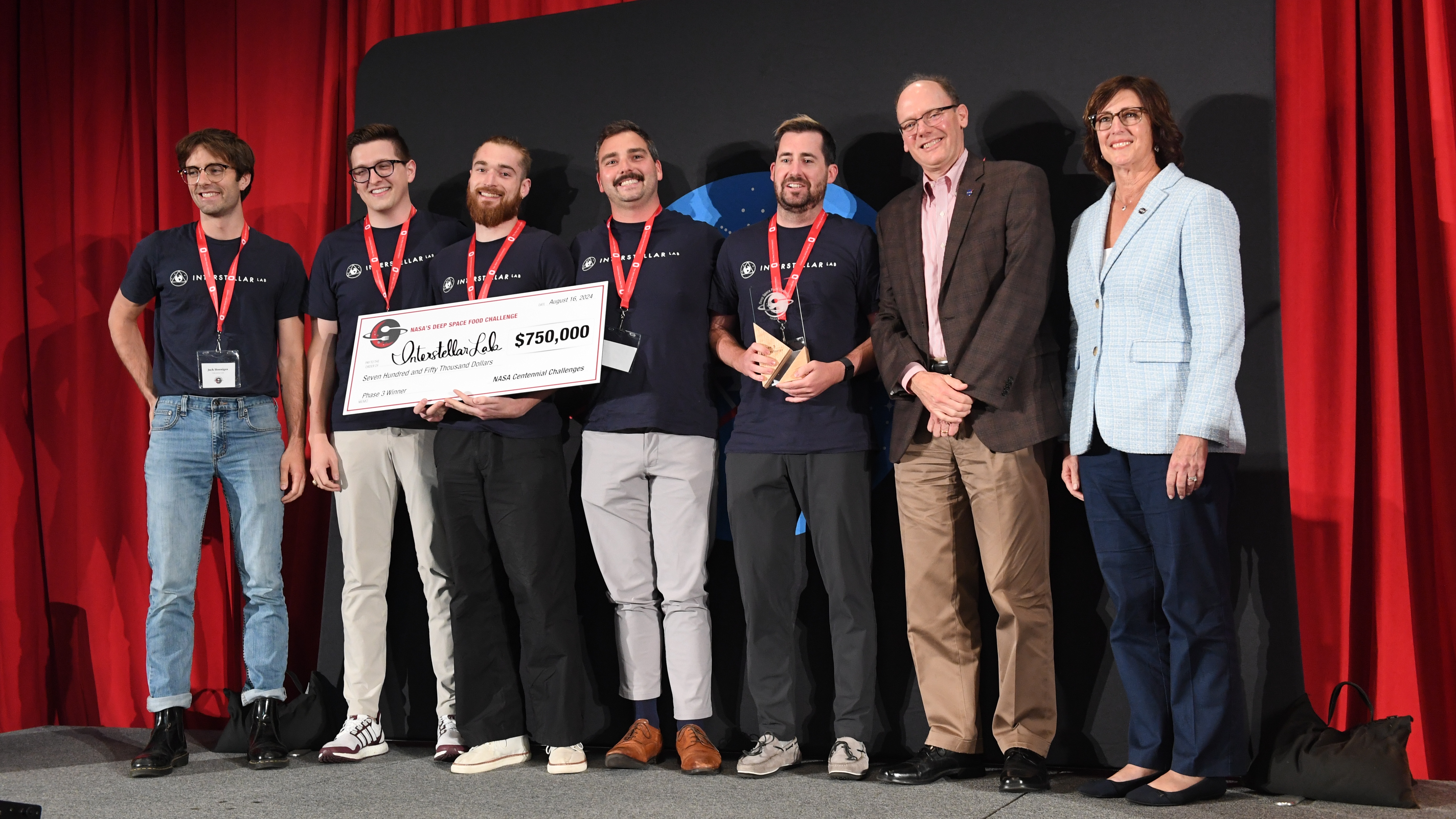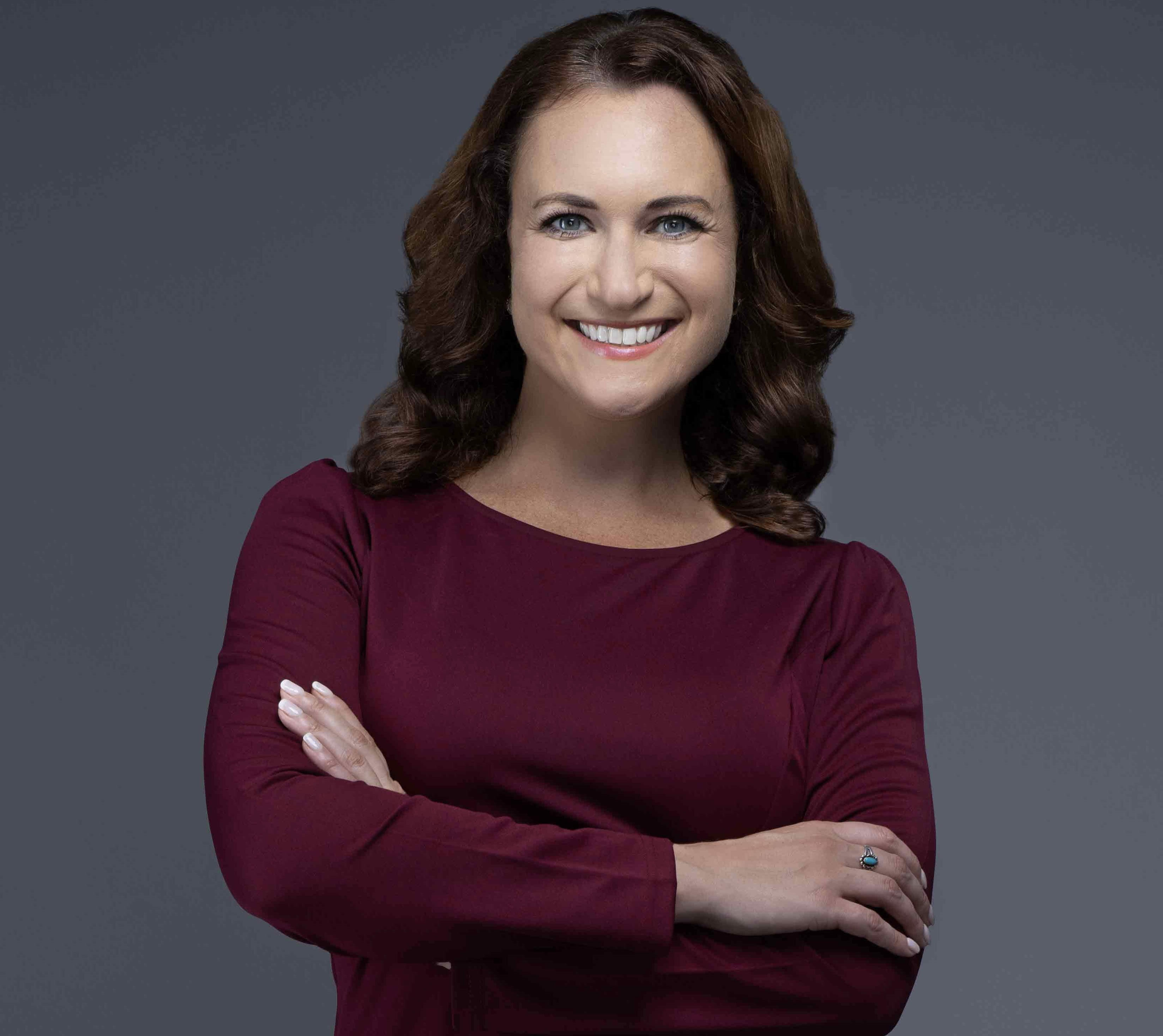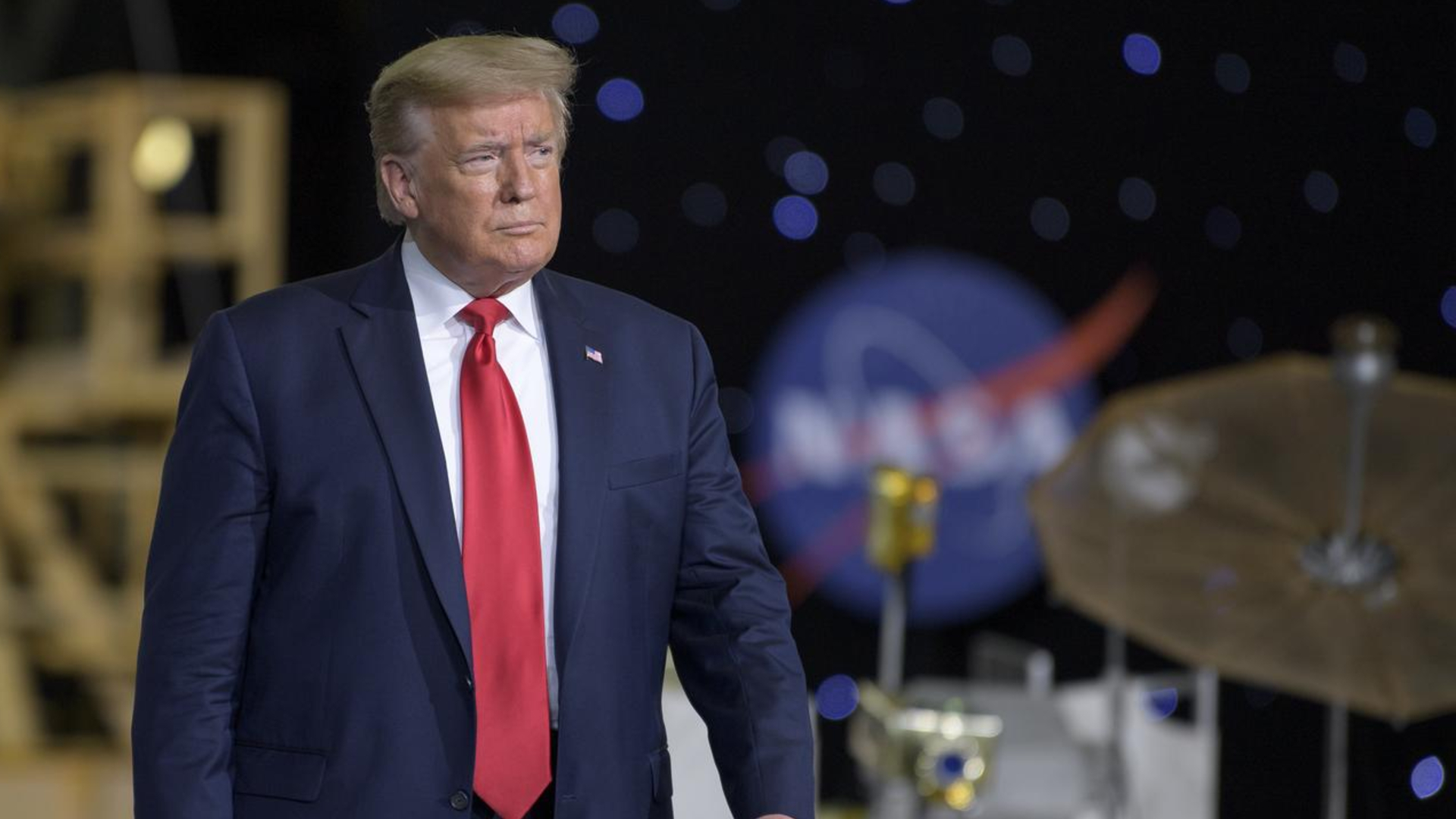NASA challenged the public to make 'deep space food' — here are the winners
The top prize went to Interstellar Lab.

The winners
The challenge began in 2021 and, to date, has included more than 300 teams from 32 countries.; the endeavor is also split between NASA and the Canadian Space Agency (CSA).Winners were selected during the first two phases of the competition, and the final, Phase 3, began in September 2023.
Four American teams were awarded $50,000 each and invited to compete in the third and final phase of the competition, during which they had to construct a full-scale model of their food production system and demonstrate how it works. Phase 3 was hosted by the Methuselah Foundation and Ohio State University; for two-months, the teams tested and demonstrated their technology in Columbus, Ohio, at the university's campus. During this period, important milestones had to be passed including palatability, safety, sensory testing and harvesting volumes. Each team had a group of Ohio State students, known as "Simunauts", that were in charge of the process during the eight-week period and collected information to present to a judging panel.
Related: Loneliness is a dish best served in space — why food may taste weird to astronauts
Interstellar Lab in Merritt Island, Florida, took home the grand prize of $750,000. Barbara Belvisi and her team developed a small business that uses a combo of artificial intelligence, advanced equipment and bioscience to create ingredients that are plant-based and can be used in space as well as on Earth. Through its growth system, the food production operation is self-sustained, procuring microgreens, vegetables and even the insects needed to produce micronutrients.
Nolux, a team consisting of researchers from the University of California, Riverside, was a runner-up that received $250,000 for its development of an artificial photosynthetic system that can produce plant and fungal-based foods in the absence of biological photosynthesis. The other runner-up who took home $250,000 was Jim Sears, the solo creator behind the Standing for Safe Appliance, Tidy, Efficient & Delicious (SATED) device. Sears was able to generate different types of customizable food including peach cobbler and pizza. Each product is fire-safe and includes a combination of in-situ grown ingredients and those with an extended shelf-life.
"Congratulations to the winners and all the finalist teams for their many years dedicated to innovating solutions for the Deep Space Food Challenge," Amy Kaminski, program executive for NASA's Prizes, Challenges, and Crowdsourcing at NASA Headquarters in Washington, also said in the statement. "These food production technologies could change the future of food accessibility on other worlds and our home planet."
Breaking space news, the latest updates on rocket launches, skywatching events and more!

Meredith is a regional Murrow award-winning Certified Broadcast Meteorologist and science/space correspondent. She most recently was a Freelance Meteorologist for NY 1 in New York City & the 19 First Alert Weather Team in Cleveland. A self-described "Rocket Girl," Meredith's personal and professional work has drawn recognition over the last decade, including the inaugural Valparaiso University Alumni Association First Decade Achievement Award, two special reports in News 12's Climate Special "Saving Our Shores" that won a Regional Edward R. Murrow Award, multiple Fair Media Council Folio & Press Club of Long Island awards for meteorology & reporting, and a Long Island Business News & NYC TV Week "40 Under 40" Award.
